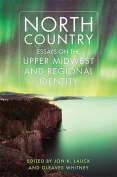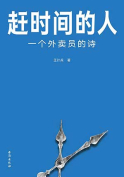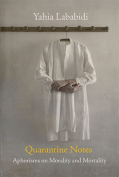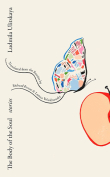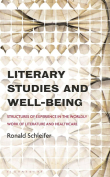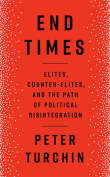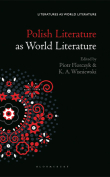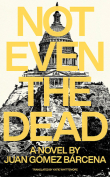End Times: Elites, Counter-Elites, and the Path of Political Disintegration by Peter Turchin
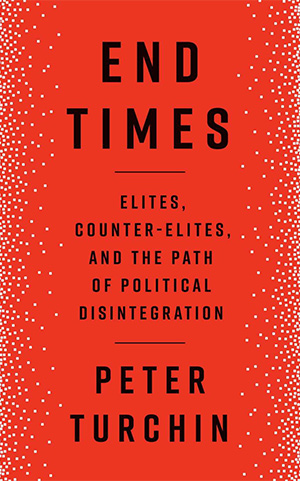 New York. Penguin Press. 2023. 356 pages.
New York. Penguin Press. 2023. 356 pages.
Peter Turchin is predicting a grave spiral of political turmoil that may well end badly for the American body politic. Employing a synthesis of social science methods, he has aimed at making political history predictable. What he calls “cliodynamics” is fundamentally a class-based approach that attempts to analyze the resentment whose primary foundation is wealth inequities. The soured populism represented by Donald Trump is a prime example of a present and future reality so divisive that it threatens the current order. There is no resolution as things stand, no rosy future.
Turchin was trained as a theoretical biologist; End Times is fairly abstract, the more so as it advances. He largely leaves the particulars of what he sees as the American crisis behind, in favor of complexity, systems sciences, and data analysis using Seshat and Crisis DB coding systems. In terms of specifics, including increasingly pathological aspects of society, Turchin, early on, mentions in passing deaths from despair—namely, rising rates of suicide and drug overdose, mostly in reference to wage levels.
One could argue that the idea of “end times” has less to do with the unresolved political quagmire than with the quality of society itself, as in the ever-increasing levels of isolation and loneliness documented in Robert D. Putnam’s Bowling Alone (2000), or the frightening, steadily growing numbers of mass shootings and the alarming mental health crisis among young people, largely owing to the corrosive, immersive effects of the technoculture. Only by reference to such realities—not to mention the global environmental catastrophe—could a book be legitimately titled End Times.
Turchin has elsewhere tackled empires and their fates. A new work by John Rapley and Peter Heather, Why Empires Fall (2023), argues that we are on the brink of, pretty literally, the loss of everything. Even if End Times is cast strictly as a matter of political policy, that crisis is really not subject to a political solution. The alienation and the disaffection are connected to something far more pervasive: failing civilization. Turchin does ask, “Why do complex societies periodically get into trouble?” But he fails to persuasively address this (rather timidly put) question.
For by now there is pretty much nothing outside civilization, and it is imploding. Failing, generally speaking, on all fronts, in every area, at every level. Based on technology and capital, there is one global, totalizing civilization, cultural differences notwithstanding. Within it, we have become ever more dependent on distant, complex systems. The always-advancing control ethos that is domestication makes us civilization addicts.
Entropy too reigns in the ravaged world. Not good news for civilization, which depends on energy for its development, for its existence. This is the core message of Ian Morris’s The Measure of Civilization (2013). Like cancer, civilization must grow or die. It expands, parasitically consumes its host, and dies. Joseph A. Tainter’s The Collapse of Complex Societies (1990) documents this process convincingly. In its death throes, civilization becomes nonlife; devastation and disease are the norm. But this isn’t the “new normal,” for that term implies stasis or stability, and the downward spiral is not stable. Sudden, often unpredicted failures or anomalies are likely.
Michel Houellebecq’s novel about two physicists, The Elementary Particles (2000), portrays a prevailing fog of malaise. Not just malaise but a condition of zero vitality. Society, if we can still call it that, has reached the end of the trail. There is no energy behind anything. A chilling and prescient best-seller. Now the TV ads offer buying a car without getting off the couch, putting on shoes without having to bend over. And why tackle anything, when the chatbot gives the answer with the push of a button?
As Tainter points out, the ever-greater complexity of civilization means it consumes more energy than it produces. Its crises call forth “solutions” that involve more complexity, at higher cost. This is the march of technology, producing a placeless, even worldless society. The rule of AI. A ruined, hopeless condition.
Derrida’s “there is nothing outside the text” gives way to the realization that there is nothing inside the text. Nothing inside the high-tech machine that hasn’t been borrowed from life and refashioned as if learned. Life-energy wanes as the pace of technology accelerates. We move at its false tempo. For some time now there have been more connections between computers than between computers and their users. Amanda Stewart offers insight into the texture of machine communication: the media voice is an “unrelenting, depressed, all-knowing voice, a voice that has no self-reflection, no ambiguity” (2011). The movement of technology has removed a sense of history, has replaced it in a basic sense, hence no perspective on what is happening.
For Turchin to focus so much on Trump is to neglect the fact that on a basic level, things get worse no matter who is president. With its narrow focus on politics, End Times does not bear the weight of its title. Ed Ayres put it this way: “We are being confronted by something so completely outside our collective experience that we don’t really see it, even when the evidence is overwhelming” (2001). A couple of decades later, the reality is far more extreme across the board. Fear and anxiety mount as the very definition of humanity is up for grabs.
The tech juggernaut is lurching forward, with the most backward misjudgments apparently still in force. Technology is neutral, just a tool, etc. Such untruth is tech’s ideological defense, but the lie wears thin. Technology is the embodiment of the dominant culture, its defining reality, nothing less. It is the cutting edge of civilization, revealing, in no uncertain terms, civilization’s lethal consequences. It is the weapon at the essence of domestication. We are still being told that technology connects us, when it is clearly the instrument of our isolation, our separation from others and from the earth. In the absence of social bonds or community, we urgently need to dissolve what is destroying so much. Our dire situation shows the validity of what must be done.
Collapse can be defined as the transition from complexity to a simpler plane of life. This is not a dystopian horizon. Fragmentation can be the grounds for a radical decentralization, a return to connection, to an original way of being. We can embrace collapse and its challenges in the name of rewilding or de-domestication.
John Zerzan
Eugene, Oregon


